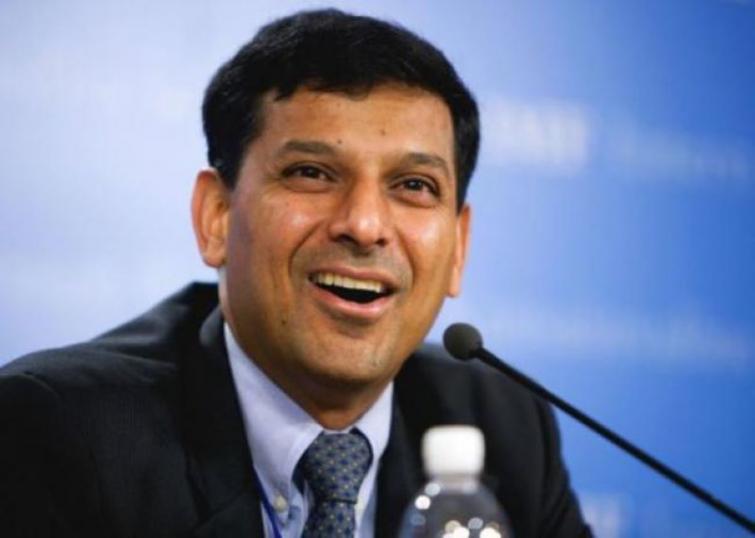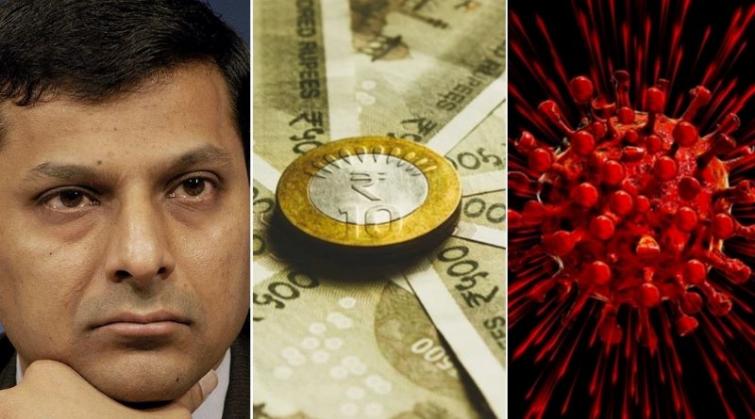
Raghuram Rajan ready to help India as country stares at post-COVID-19 economic crisis
New Delhi/IBNS: Days after giving suggestions to the Narendra Modi government on how to tackle the post-Coronavirus economic situation, former Reserve Bank of India (RBI) governor Raghuram Rajan said he was ready to help India as the vast country of 1.3 billion people is staring at a financial crisis once the threat of COVID-19 retreats.
During an interview with NDTV, Rajan, when asked whether he would return to India to help on economy during pandemic, said, "The answer is a straightforward yes."
"If the virus spreads, as it has spread in Italy and the United States, we have to take it very seriously. What you see in these countries is a tremendous effect on public health, the overburdening of many hospitals and many deaths and of course, when that is happening economic activity is hard to carry on," he added.
"Hopefully, we will see a rebound next year, and it depends on measures we take to prevent a recurrence (of the pandemic)," Rajan told the English news channel.
Rajan's comment came as India is nearing an end to the 21-day massive, unprecedented nationwide lockdown which was called by Prime MInister Narendra Modi on Mar 24 to stem the spread of COVID-19.
The lockdown, which is due to end on Apr 14 midnight, has caused humanitarian crisis in the country leading migrant workers and daily wagers suffering the most.
After the conclusion of his meeting with all state Chief Ministers, Modi will on Saturday is likely to take a call on whether the nationwide lockdown can be extended.
Meanwhile, Odisha and Punjab have already extended the shutdown by few more weeks.
Advising the Indian government to spend more on poor to manage the crisis caused by the Novel Coronavirus, Rajan days ago said the pandemic virus is the "greatest emergency since Independence".

In his personal blog in LinkedIn, Rajan said, "Economically speaking, India is faced today with perhaps its greatest emergency since Independence. The global financial crisis in 2008-09 was a massive demand shock, but our workers could still go to work, our firms were coming off years of strong growth, our financial service was largely sound, and our government finances were healthy.
None of this is true today as we fight the coronavirus pandemic."
Though Rajan considered the suppression of the pandemic virus as the immediate priority, he through his blog advised the government to take some measures to control post-Coronavirus situation.
"We should now plan for what happens next after the lockdown, if the virus is not defeated. It will be hard to lockdown the country entirely for much longer periods, so we should also be thinking of how we can restart certain activities in certain low infection regions with adequate precautions," Rajan said.
Rajan, who is a professor of Finance at The University of Chicago Booth School of Business, also feels post-lockdown the government must ensure that the poor and non-salaried lower middle class who are prevented from working for longer period can survive".
"Unlike the United States or Europe, which can spend 10% more of GDP without fear of a ratings downgrade, we already entered this crisis with a huge fiscal deficit, and will have to spend yet more," he added.
Rajan, who has also served as the chief economist of International Monetary Fund (IMF), said the government should talk to experts or even may reach out to opposition political leaders "who have had experience in previous times of great stress like the global financial crisis".
He added, "It is said that India reforms only in crisis. Hopefully, this otherwise unmitigated tragedy will help us see how weakened we have become as a society, and will focus our politics on the critical economic and healthcare reforms we sorely need."
Prior to the outbreak of the deadly virus, the Indian economy was disarrayed with the Gross Domestic Product (GDP) falling in consecutive quarters to settle below 5 per cent.
Amid the nationwide lockdown, the Centre has reached out to poor supporting them with a stimulus package of Rs, 1,70,000 crore.
Under the package, which has a special focus on India's poor, all health workers fighting against COVID-19 will get an insurance of Rs. 50 lakh for the next three months.
Announcing the mega package late last month, Union Finance Minister Nirmala Sitharaman, who faced a barrage of criticisms over her handling of the Indian economy, said eight lakh farmers will get Rs. 2,000 to their bank accounts while a one-time ex-gratia of additional Rs. 1000 will be given to poor senior citizens who are widowed and disabled.
Besides, nearly eight crore BPL families who avail Ujjwala scheme will get free gas cylinders for the next three months.
Support Our Journalism
We cannot do without you.. your contribution supports unbiased journalism
IBNS is not driven by any ism- not wokeism, not racism, not skewed secularism, not hyper right-wing or left liberal ideals, nor by any hardline religious beliefs or hyper nationalism. We want to serve you good old objective news, as they are. We do not judge or preach. We let people decide for themselves. We only try to present factual and well-sourced news.







